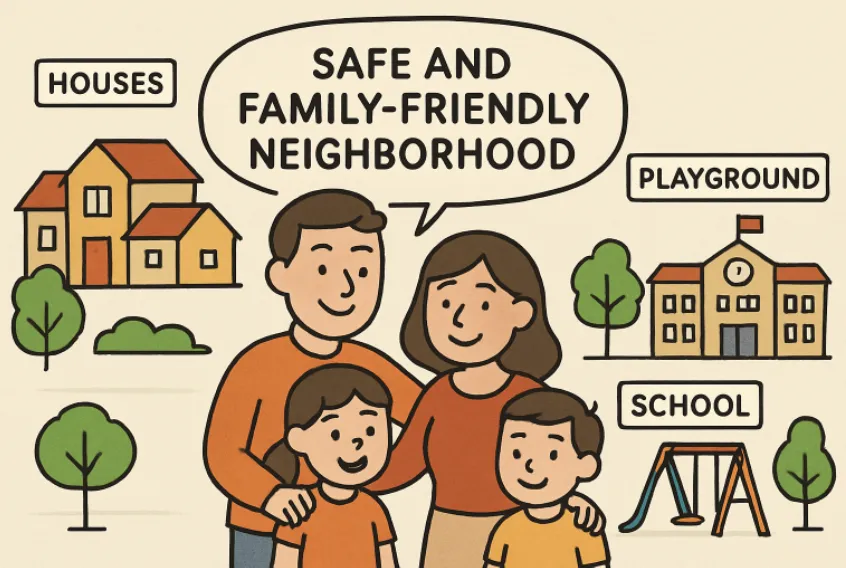Choosing the right neighborhood in 2025 goes beyond checking prices or looking for good schools; it’s about creating a foundation for your loved ones to flourish. From the first visit to the day-to-day lifestyle, the environment you select profoundly influences your family’s experiences, safety, and happiness. As you embark on this vital journey, consider the expertise of Rosemary Beach, FL, real estate experts The Gettings Group for insights specific to one of Florida’s most desirable communities.
Understanding what truly matters—like safety, convenience, and future opportunities—can help narrow your search. Each neighborhood has its unique charm, market trends, and resources, making it vital to conduct thorough research and connect with knowledgeable locals. By evaluating these elements, you can ensure your investment benefits your family’s present needs and long-term well-being.
Beyond personal visits, online tools and local forums reveal genuine resident experiences, recent statistics, and emerging trends. Pairing this data with firsthand impressions will give you the best chance at finding a community that balances your priorities and feels like home from day one.
Families today want more than just a house—they seek communities that offer connection, opportunity, and peace of mind. Utilizing digital platforms and trusted real estate professionals, you can discover neighborhoods that meet your specific needs and stand out in the evolving housing landscape of 2025.
Prioritize Safety and Security
Start your neighborhood evaluation by investigating its safety record. Local police department websites and community policing reports offer up-to-date crime statistics and trends. Speak with current residents to gain a genuine sense of day-to-day safety and inquire about neighborhood watch programs or community policing initiatives. Consistently top-ranked towns, such as Carmel, Indiana, are praised for their low crime rates and active community involvement, which provides peace of mind for families.
Evaluate Educational Opportunities
For most families, access to reputable schools is a non-negotiable. It’s essential to examine the overall quality of local education systems, as well as the availability of programs that cater to diverse student interests, such as STEM, arts, or advanced learning opportunities. According to a Forbes ranking of the 25 best places to raise a family in the U.S., strong schools are often a defining factor, helping not only to shape children’s prospects but also to protect and enhance long-term property value.
Assess Affordability and Cost of Living
Affordability remains a key concern, especially as housing markets shift. Examine average home prices, rental levels, and property tax rates before making a commitment. Consider not just mortgage or rental payments, but also daily living expenses and potential HOA fees. According to resources such as Zillow’s housing data, buyers and renters can explore real-time market comparisons to understand trends better and evaluate options.
Explore Community Amenities
The best neighborhoods nurture family life through public spaces and inclusive activities. Look for well-maintained parks, playgrounds, walking trails, libraries, and community recreation centers. Events like local farmers’ markets, holiday parades, and town festivals signal a vibrant, welcoming atmosphere. Access to healthcare, grocery stores, and fitness centers also enhances daily living and convenience.
Consider Commute and Transportation
Reliable and efficient transportation options alleviate daily stress and enable more quality family time. Measure proximity to major job centers, the availability of public transit, and traffic patterns during rush hours. Neighborhoods with pedestrian-friendly streets, bike lanes, and safe bus routes not only benefit your commute but also promote a healthier, more active lifestyle for people of all ages.
Investigate Future Development Plans
Before moving, research upcoming infrastructure, commercial, or residential projects that may impact the area. Town or city planning offices publish future development maps, zoning changes, and community improvement initiatives that could affect your lifestyle—positively or negatively. Growth can bring new amenities and increase your home’s value, but it may also introduce temporary disruptions, such as construction noise or increased traffic.
Engage with the Community
Nothing beats firsthand experience—visit your target neighborhood at different times of day and week. Interact with potential neighbors, attend open houses, and participate in local events. This allows you to gauge the vibe, observe how children play, and see how actively residents engage with their community. Feeling welcomed and comfortable is essential for long-term happiness.
Conclusion
Choosing a new neighborhood for your family is one of the most impactful decisions you will make. Prioritize research, ask insightful questions, and blend data with your instincts. From safety and schools to recreation and future growth, focusing on these crucial elements will lead you to a neighborhood where your family can thrive, connect, and build lasting memories.



